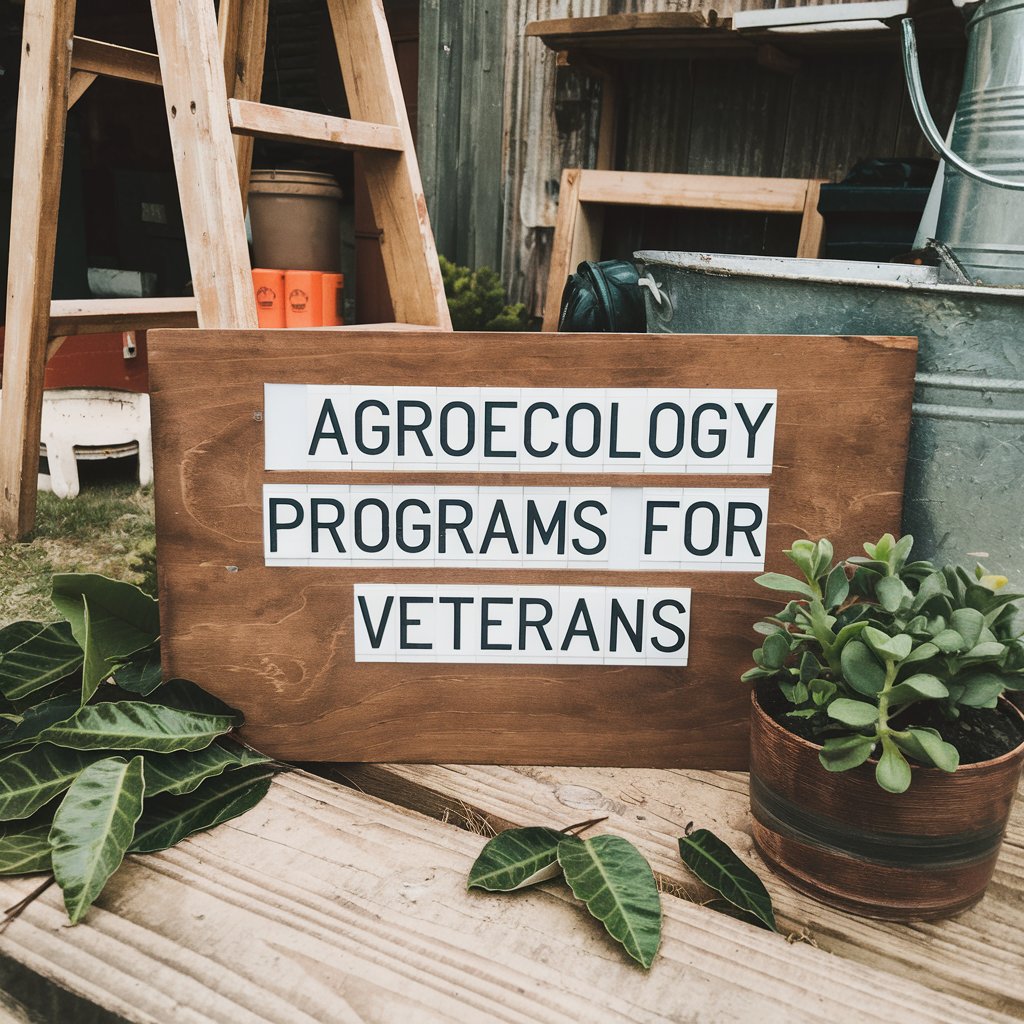Imagine a place where healing grows from the soil, where purpose cultivates alongside the crops. This is the heart of agroecology programs for veterans and at-risk populations. These initiatives offer more than just a chance to learn farming; they provide a holistic path to recovery and empowerment.
For individuals seeking a fresh start, understanding the profound benefits of agroecology can be life-changing. In this post, we will explore how these programs foster healing, promote sustainable agriculture, and create community among those who need it most.
What is Agroecology?
Agroecology is more than just farming; it’s a way of life that integrates ecological principles into agricultural practices. By focusing on sustainable agriculture, it emphasizes biodiversity, soil health, and ecological balance. For veterans and at-risk populations, agroecology offers a unique opportunity to connect with nature while gaining valuable skills.
These programs often cater to those who have faced challenges in traditional settings, providing a nurturing environment where participants can thrive. By learning to care for the land, individuals also learn to care for themselves, rebuilding confidence and a sense of purpose. The holistic approach of agroecology makes it an ideal fit for those seeking both personal and professional growth.
Building partnerships with local communities is key to the success of agroecology programs. These collaborations help to create support networks and foster a sense of belonging. Through shared experiences and collective efforts, participants find strength in unity, breaking down barriers and building bridges.
The Healing Power of Farming
The therapeutic benefits of working with the land are well-documented. Farming can offer a sense of peace and purpose, especially for those who have experienced trauma or hardship. For veterans, agroecology programs provide a structured environment where they can apply their skills and experiences in a positive way.
Engaging in sustainable agriculture allows participants to witness the fruits of their labor, providing tangible rewards and a sense of accomplishment. This process can be incredibly empowering, fostering self-esteem and resilience. The physical nature of farming also promotes physical health and well-being, contributing to overall recovery.
For at-risk populations, agroecology offers a chance to break the cycle of poverty and instability. By providing access to education and resources, these programs open doors to new opportunities and pathways to success. Participants learn valuable skills that translate into meaningful employment, paving the way for a brighter future.
Addressing Mental Health Challenges
Many veterans and at-risk individuals face mental health challenges, often stemming from traumatic experiences or difficult life circumstances. Agroecology programs can play a vital role in addressing these issues, offering a supportive environment where participants can heal at their own pace.
The sense of routine and responsibility that comes with farming can help to stabilize emotions and improve mental well-being. By fostering a connection with nature, individuals often experience reduced stress and anxiety. The communal aspect of agroecology also encourages social interaction, combating feelings of isolation and loneliness.
Access to mental health resources is crucial for participants in these programs. Many initiatives offer additional support services, such as counseling and therapy, to ensure comprehensive care. By addressing both physical and mental health needs, agroecology programs create a path to holistic healing.
Building Community and Support Networks
In agroecology programs, the sense of community is often as valuable as the agricultural skills learned. For many participants, forming connections with others who share similar experiences can be incredibly empowering. These relationships foster a sense of belonging and provide a robust support network.
Collaborative projects and group activities encourage teamwork and communication, essential skills for success both on and off the farm. Participants learn to rely on one another, building trust and camaraderie. This sense of unity strengthens resilience and fosters personal growth.
In addition to personal connections, agroecology programs often partner with local organizations to provide additional support and resources. These partnerships enhance the program’s impact, creating opportunities for participants to engage with the broader community. By building these bridges, individuals gain access to a wealth of resources and networks that can aid in their transition to civilian life or stability.
Economic Opportunities and Job Training
One of the key benefits of agroecology programs is the emphasis on job training and economic empowerment. Participants learn valuable skills that can lead to employment opportunities in agriculture and related fields. By gaining hands-on experience and industry knowledge, individuals increase their employability and marketability.
Skill development in areas such as crop management, animal husbandry, and sustainable practices equips participants with a diverse skill set. These skills are transferable to a variety of roles within the agricultural sector, opening doors to potential career paths. With the growing demand for sustainable agriculture, individuals trained in agroecology are well-positioned to meet industry needs.
Agroecology programs often provide networking opportunities and job placement assistance, further enhancing their participants’ prospects. By connecting individuals with potential employers and industry leaders, these initiatives facilitate a seamless transition from training to employment.
The Role of Education in Agroecology
Education is a fundamental component of agroecology programs, providing participants with the knowledge and skills necessary for success. A focus on sustainable agriculture practices ensures that individuals are equipped with the tools needed to make environmentally conscious decisions.
Through workshops, classes, and hands-on experience, participants gain a comprehensive understanding of ecological principles and best practices. This education empowers individuals to implement sustainable solutions, both on their farms and in their communities.
Educators play a crucial role in guiding participants on their agroecology journeys. By fostering a supportive and inclusive learning environment, instructors help individuals overcome challenges and realize their potential. This mentorship is invaluable, contributing to personal and professional growth.
Empowering Veterans Through Agroecology
Veterans possess a unique set of skills and experiences that make them well-suited for careers in agroecology. Their discipline, leadership, and problem-solving abilities are invaluable assets in the agricultural sector. Agroecology programs provide a platform for veterans to apply these strengths in new and meaningful ways.
For many veterans, transitioning to civilian life can be challenging. Agroecology offers a bridge between military service and civilian employment, providing a sense of purpose and direction. By engaging in sustainable agriculture, veterans contribute to their communities and build fulfilling careers.
Support for veterans extends beyond skill development; many programs offer tailored resources and assistance to address specific needs. By prioritizing veteran welfare, agroecology initiatives create an inclusive and supportive environment for all participants.
Supporting At-Risk Populations
At-risk populations often face barriers to employment and stability, making agroecology programs a vital resource. By providing access to education, training, and support, these initiatives empower individuals to overcome obstacles and achieve success.
The focus on sustainable agriculture offers a pathway to economic independence and self-sufficiency. Participants gain skills that enable them to secure stable employment and build brighter futures. By addressing social and economic disparities, agroecology programs contribute to positive change and community development.
Collaboration with local organizations enhances the impact of agroecology programs, ensuring that participants have access to comprehensive support services. By fostering partnerships and building networks, these initiatives create pathways to healing and empowerment for all involved.
Agroecology programs offer a powerful solution for veterans and at-risk populations seeking healing and empowerment. By integrating sustainable agriculture practices with personal and professional development, these initiatives create pathways to success. The benefits extend beyond individual participants, contributing to stronger communities and a healthier planet.
For those interested in exploring agroecology, the opportunities are boundless. Whether you’re a veteran seeking a new career, an at-risk individual looking for stability, or a farmer committed to sustainable practices, agroecology offers a path to growth and fulfillment. By engaging with these programs, you can cultivate change and make a lasting impact.






